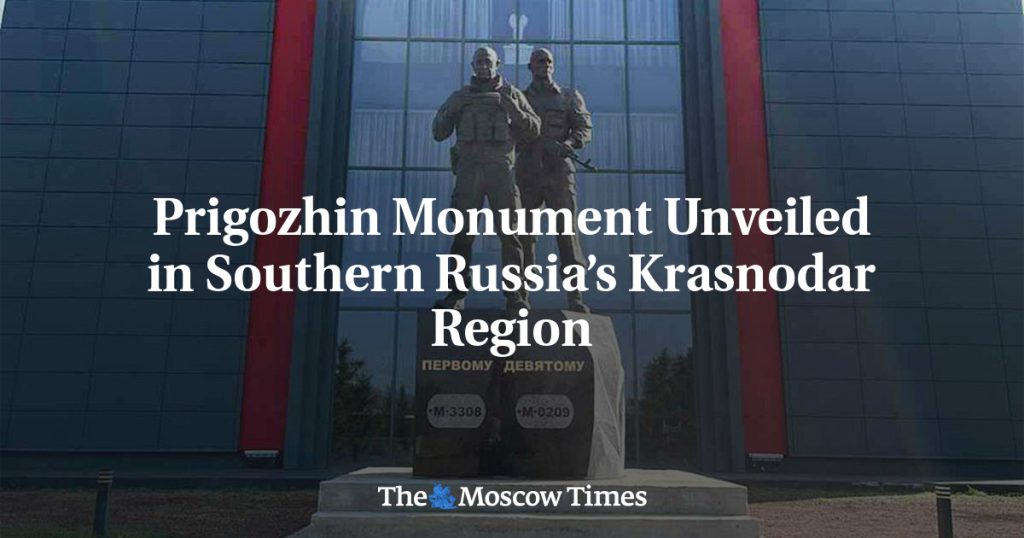A monument honoring the late co-founders of the Wagner mercenary group, Yevgeny Prigozhin and Dmitry Utkin, has been unveiled in the Krasnodar region of Russia. The statue features Prigozhin in a flak jacket holding a two-way radio, while Utkin is depicted gripping an automatic rifle behind him. Engraved on the base of the monument are their call signs, “First” and “Ninth,” along with their dog tags. The monument was erected in front of the group’s chapel in Goryachy Klyuch, near its former training base and largest burial site for Wagner fighters.
Wagner disbanded last year and its fighters were transferred to units under the control of the Russian armed forces after Prigozhin attempted a failed mutiny against Russia’s military leadership. In August, Prigozhin and his close associates were killed in a plane crash, which is believed to have been an assassination plot orchestrated by the Kremlin. Photos of the Prigozhin and Utkin monument were initially shared by pro-war bloggers while it was being transported. Municipal authorities in Goryachy Klyuch stated that they did not authorize the statue’s installation, but no authorization was needed as the monument was located on private property.
The unveiling of the statue has stirred controversy, as it commemorates individuals involved in a mercenary group that has been linked to various conflicts and human rights abuses. Wagner has been accused of carrying out operations in Syria, Ukraine, Libya, and other countries, often in support of Russian interests. The group has been known to recruit fighters from various backgrounds, including former military personnel, and has faced criticism for its lack of accountability and transparency. The monument’s location near the group’s training base and burial site has raised concerns about the glorification of violence and war.
The creation of the monument also highlights the complex relationship between private military companies, such as Wagner, and state actors like the Russian government. While Prigozhin and Utkin were key figures in the Wagner group, their ties to the Kremlin have been a subject of speculation and scrutiny. The statue’s unveiling comes at a time when Russia’s involvement in conflicts abroad has faced increased international attention and criticism. It raises questions about the role of private military companies in advancing state interests, as well as the accountability of those involved in such operations.
The statue of Prigozhin and Utkin serves as a reminder of the controversial legacy of the Wagner mercenary group and the individuals who were associated with it. The monument’s inscription of their call signs and dog tags reflects the close-knit nature of the group and its members. While the monument may be seen as a tribute to fallen fighters, it also sheds light on the challenges and ethical implications of using mercenaries in armed conflicts. The unveiling of the statue in Goryachy Klyuch underscores the ongoing debate surrounding the involvement of private military companies in warfare and the impact of such operations on international security and human rights.


